Translated by Zameelur Rahman
Question
Do you say that the commemoration of his (Allah bless him and grant him peace) birth is deemed blameworthy (mustaqbah) in the Shari‘ah, from the evil and prohibited innovations (al-bid‘at al-sayyi’ah al-muharramah), or [do you believe] otherwise?
Answer
Far be it that any of the Muslims say, let alone we, ourselves, say, that commemorating his noble birth (upon him blessing and peace), rather even commemorating the dust on his shoes and the urine of his (Allah bless him and grant him peace) camel, are deemed blameworthy in the Shari‘ah, from the evil and prohibited innovations; for, commemorating the states which have the least connection with the Messenger of Allah (Allah bless him and grant him peace) is from the most desirable of recommended acts (ahabb al-mandubat) and the greatest of preferable acts (a‘la l-mustahabbat) according to us, whether it is the commemoration of his noble birth or commemoration of his urine, feces, standing, sitting, sleeping and waking as is stated clearly in our treatise called Al-Barahin al-Qati‘ah at various junctures therein, and in the fatwas of our teachers (mashayikh) (may Allah have mercy on them), as [is mentioned, for example] in the fatwas of Mawlana Ahmad ‘Ali al-Muhaddith al-Saharanpuri, the student of Shah Muhammad Ishaq al-Dahlawi then al-Muhajir al-Makki, which we will quote in translation, that it may become an example of all [the other fatwas]:
He (may Allah have mercy on him) was asked about the milad function, in which manner is it permissible and in which manner is it impermissible? He replied [saying] that:
Commemorating the noble birth of our master, the Messenger of Allah (Allah bless him and grant him peace) using sound narrations, during times devoid of the obligatory duties of worship, and in forms not contravening the path of the Companions and the people of the three generations whose greatness has been attested to, and [in forms not] containing beliefs that may be conceived of as shirk and bid‘ah, and in manners which do not contravene the conduct of the Companions which is the measure of his (peace be upon him) statement, “What I and my Companions are upon,” and in gatherings free from abominations of the Shari‘ah, is a cause for goodness and blessing, with the condition that it is accompanied by pure intention and sincerity and the belief that it is included within the totality of recommended good remembrances (jumlat al-adhkar al-hasanah al-mandubah), and is not restricted to a time from the times. When it is so, we do not know of any Muslim who rules it to be unlawful (ghayr mashru‘) or bid‘ah. To the end of the fatwa.
It is learnt from this that we do not denounce the commemoration of his noble birth. Rather, we denounce the abominable acts that are associated with it as you [may] have seen in the mawludi functions which [take place] in India, of narrating weak and forged narrations, the mixing of men and women, extravagance in lighting candles and decorations, and the belief that it is obligatory, by vilifying, insulting and anathematising those who do not attend their function with them, and other such abominations of the Shari‘ah which are almost not found to be absent from them. If they were free of these abominations, far be it that we say that commemorating the noble birth is abominable and a bid‘ah. How can this ugly belief be suspected of a Muslim? Hence, this attribution to us is also from the inventions of the deceptive lying deviants (Allah Exalted is He disgrace them, and curse them on land and sea and on smooth and rough land). [1]For further reading, see Mawlid, Deoband and Hanafi fiqh
Al-Muhannad ‘ala l-Mufannad ya‘ni ‘Aqa’id ‘Ulama Ahl Sunnah Deoband, pp. 60-63
| ↑1 | For further reading, see Mawlid, Deoband and Hanafi fiqh |
|---|

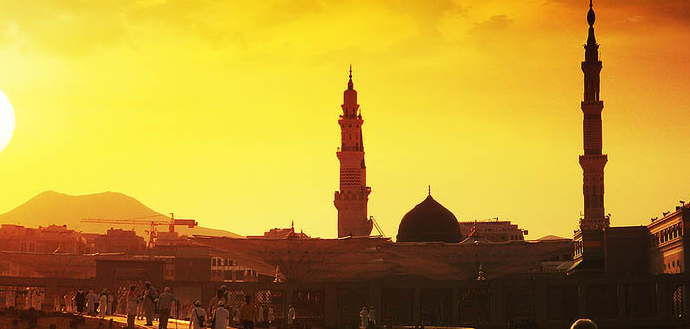
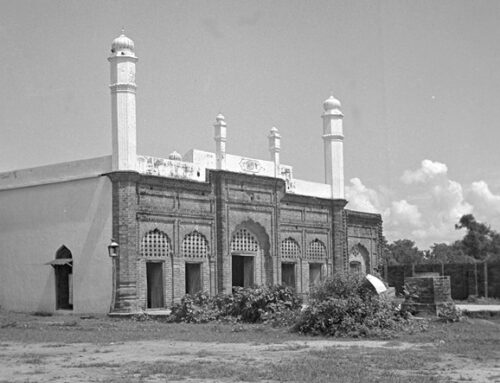
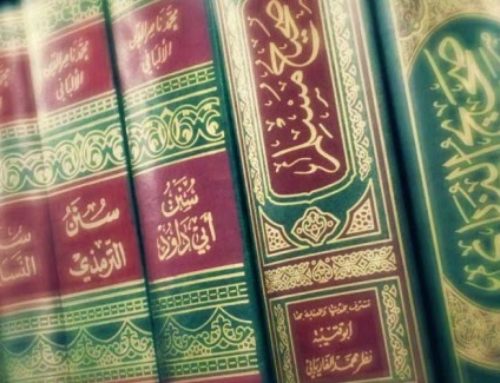
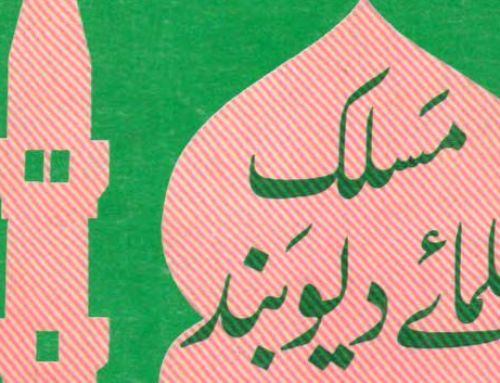
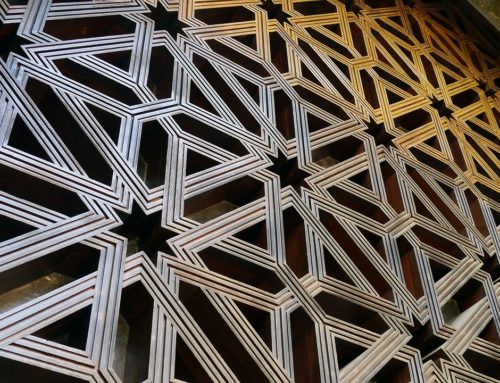
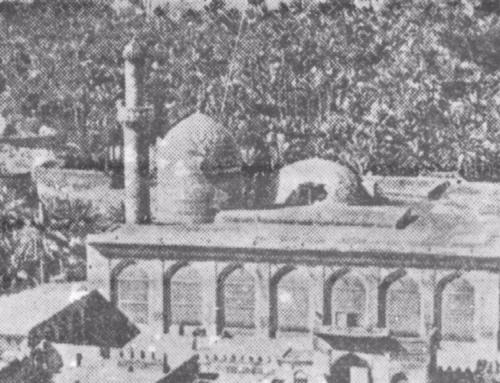
You should include a footnote about Mawlana Ahmad Ali Saharanpuri that he was the teacher of Pir Mehr Ali Shah, rahimahumallah. Suffice to say that Pir Sahib was an extremely learned person, and his having studied with Mawlana Ahmad Ali was the highlight of his scholarly career. The mention of Pir Sahib will force a number of people who mock the above-mentioned position on the celebration of the mawlid while holding the two aforementioned mashayikh in esteem, to think about the inconsistencies of their ways…
Honestly, I don’t understand why people mock/disagree with the above-mentioned position. It’s so “open” and all our scholars are really saying is to take out the abominable acts and beliefs from such gatherings/functions and make them Shari’ah-compliant in all aspects. This isn’t an unreasonable demand/expectation at all.
Wallahu ‘Alam.
No, its not, but some of the fatawa from Deobandi scholars are a bit more strict on the impermissibility of celebrating the mawlid. This fatwa is more lenient, in that it allows it, but just prohibits the abominable acts.
@Hasan – Actually that is not a correct assessment. This opinion is the official opinion which was signed by all the senior scholars of Deoband including contemporary scholars. There is no issue of lenient versus strict here. Yes some fatwas are worded in different tones depending on the context but at the end of the day the Deobandi opinion is as clear as daylight. It is based on the usuls of the Hanafi madhhab. The article in the footnotes (above) by Hakim al-Ummah makes it all very clear.
Some use a slightly different argument which some say is similar to the Salafi argument but that is only reflective of the state of the masses, i.e., sometimes people just need to know things explained in simple words. Not everyone is expected to understand the usuli proof.
Assalam alaikum.
Do you celebrate?
If yes ; how?
if no ; why?
It is easy for you to make an opinion that hangs between the two clear opinions of those who oppose and those who celebrate it. You think that you can make a just point by making this argument. As the question is about celebrating so please tell how deoband celebrates it.
What is the difference between what is being said here and the following?:
1. Shaykh Rasheed Ahmad Gongohi says in his Fatawa Rasheediya, chapter on Halal and Haram (2:150) to the following question,
‘‘Q: Is it correct to conduct a Mawlud Majlis that is free of Qiyam (standing up at time of birth) and is celebrated according to the sound tradition?
A: Conducting a Mawlud Majlis in ‘all states’ is not allowed since inviting people for a desirable practice is abandoned. End of fatwa’’
Urdu transliteration:
‘‘Su’wal: In’iqad-e-Majlisey Milad bi-duwn Qiyam, ba-riwayat-e-Sahih, durust hai ya nahin?
Al-Jawab: In’iqad-e-Majilsey Mawluwd ‘har haal’ main na-ja’iz hai. Tada’iy amr-e-manduwb key wasitey mana` hai. Faqat’’
Wa sharrul Umoori Muhdathaatuhaa, Wa kulla Bid’atin dhaialah, wa kulla dhalatin fin-naar” Al-Hadith (Sahih Muslim). Translation of the above Hadith: Every innovation is a misguidance and every misguidance goes to Hell fire.
All actions are dependent on their context. There are two spaces that we live in – Deen and Duniya. An action in Duniya may be innovated- this is a normal state of Duniya – example yesterday we did not use calculators – today we use calculators.
Where Deen is concerned innovations are of two types:
a) Innovation in religion – forbidden/Haraam
b) Innovation for religion – allowed – example Azan before Jumma khutbah. This was not practiced in the times of Prophet (SAW). If we follow the Hadith above without understanding its context then the Azan before Khutbah is Bidai. It wasnt there for 18 years after the Passing.
If you treat Mawlid as Deen then you are commiting a mistake and anything following from it is in error. But if you treat Mawlid as Duniya then it is not an issue.
Problem arises when people precieve the observance of Mawlid as a religious duty and sanctify it as obligatory. I have never regarded this to be obligatory but more of a social event to gather friends and family in one place and to reflect upon our Master.
Actually your assessment of bi’dah is not correct. If something is introduced FOR the purpose of assisting the Deen it is not an innovation. An innovation is something that is introduced IN the Deen, such as the mawlid, tariqaah, and things that were not even known about at the time of the Prophet(s) or his companions. The verse;….”This day have I perfected your religion for you….” is profound in its revelation because that day the verse was revealed, whatever was known as Deen was intact the Deen, and likewise on that day whatever was not Deen, was not Deen and never will be.
As-Salaamu Alaykum,
Jazakullah for the translated work….Inshallah more effort will be made to translate the works of Maulana Ashraf Ali Thanwi (rah.) for the benefit of learning.
Also, Tahir ul Qadri allows the playing of instruments and does not condemn dancing sufis. Wallahi the true shuyukh of tasawwuf and the salaf are free from these innovated and misguided acts andbelief. How can someone who slanders other muclims, commisions deviant practices and allows innovations and justifies them be “the mujadid” of the century. Also, the brailwiyoon and the staunchest antagonists of the ulema e haq of deoband, and believe them to be apostates and procalim that there salaah is not accepted behind them. Your version of tassawuf is innovated and leads to bid’ah and misguidance. May Alah swt guide us al on the sirah al mustaqeem. P.S. whilst the deoband ulema struggled against those who wanted to eradicate and demonicse Islam raza Khan bralwy was having tea with them and was honoured by them. A bit suspicious huh?